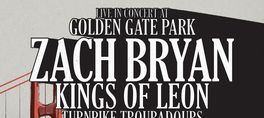Sat June 13, 2015
Forbidden Paradise (Ernst Lubitsch, US, 1924)
SEE EVENT DETAILS
at PFA Theater
(see times)
“American cinema seemed to achieve perfection at that time (the 1920s): perfection of the cut, perfection of the stitching, perfection of the fabric . . . Ernst Lubitsch was, in our memory, the man whose oeuvre will someday symbolize this perfection, this flawless style that was the distinctive feature of this art” (Henri Langlois). (Lubitsch) left for Hollywood in 1922 and made . . . daring, sophisticated comedies such as The Marriage Circle, Three Women, Lady Windermere’s Fan and the least seen, Forbidden Paradise . . . the eighth and last film with Pola Negri, their sole Hollywood collaboration and a great public success.
• Written by Hans Kraly, Agnes Christine Johnson from the play The Czarina by Lajos Biro and Melchoir Lengyel. Photographed by Charles J. van Enger. With Pola Negri, Rod La Rocque, Adolphe Menjou, Pauline Starke. (78 mins, Silent with Czech intertitles and simultaneous English translation, B&W, 35mm, From La Cinémathèque française)
show less
• Written by Hans Kraly, Agnes Christine Johnson from the play The Czarina by Lajos Biro and Melchoir Lengyel. Photographed by Charles J. van Enger. With Pola Negri, Rod La Rocque, Adolphe Menjou, Pauline Starke. (78 mins, Silent with Czech intertitles and simultaneous English translation, B&W, 35mm, From La Cinémathèque française)
“American cinema seemed to achieve perfection at that time (the 1920s): perfection of the cut, perfection of the stitching, perfection of the fabric . . . Ernst Lubitsch was, in our memory, the man whose oeuvre will someday symbolize this perfection, this flawless style that was the distinctive feature of this art” (Henri Langlois). (Lubitsch) left for Hollywood in 1922 and made . . . daring, sophisticated comedies such as The Marriage Circle, Three Women, Lady Windermere’s Fan and the least seen, Forbidden Paradise . . . the eighth and last film with Pola Negri, their sole Hollywood collaboration and a great public success.
• Written by Hans Kraly, Agnes Christine Johnson from the play The Czarina by Lajos Biro and Melchoir Lengyel. Photographed by Charles J. van Enger. With Pola Negri, Rod La Rocque, Adolphe Menjou, Pauline Starke. (78 mins, Silent with Czech intertitles and simultaneous English translation, B&W, 35mm, From La Cinémathèque française)
read more
• Written by Hans Kraly, Agnes Christine Johnson from the play The Czarina by Lajos Biro and Melchoir Lengyel. Photographed by Charles J. van Enger. With Pola Negri, Rod La Rocque, Adolphe Menjou, Pauline Starke. (78 mins, Silent with Czech intertitles and simultaneous English translation, B&W, 35mm, From La Cinémathèque française)
show less
Date/Times:
PFA Theater
2575 Bancroft Way, Berkeley, CA 94720
The Best Events
Every Week in Your Inbox
From Our Sponsors
UPCOMING EVENTS
Great suggestion! We'll be in touch.
Event reviewed successfully.








